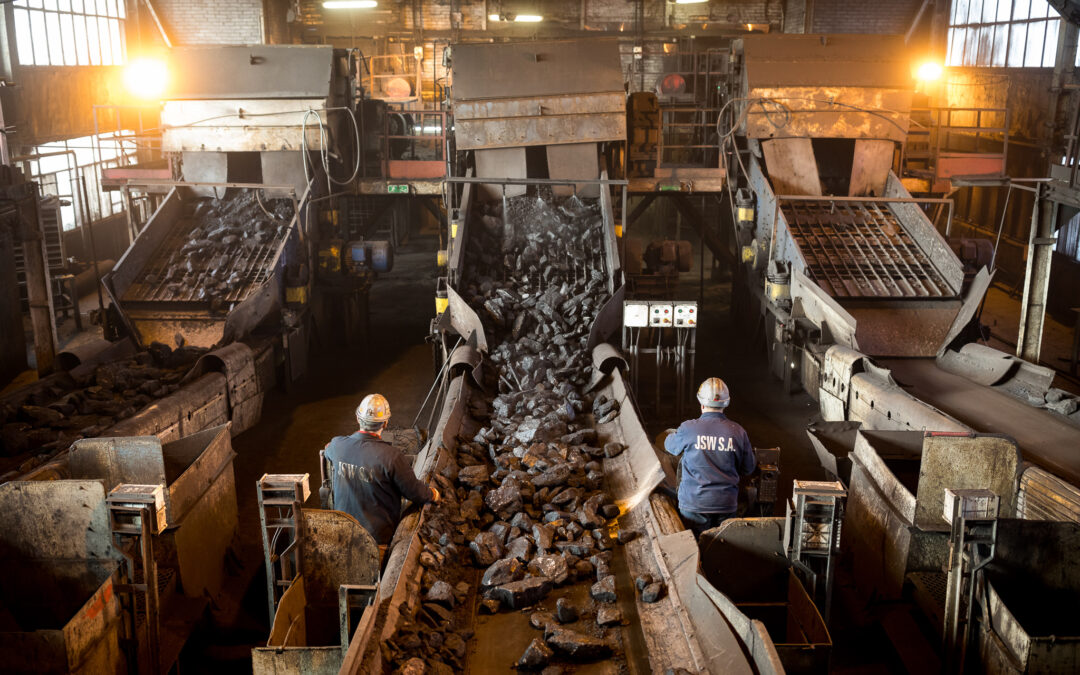Keep our news free from ads and paywalls by making a donation to support our work!

Notes from Poland is run by a small editorial team and is published by an independent, non-profit foundation that is funded through donations from our readers. We cannot do what we do without your support.
Polish state-owned firm Jastrzębska Spółka Węglowa (JSW), the European Union’s largest producer of coking coal, reported a net annual loss of almost 7.3 billion zloty (€1.7 billion) for 2024 – its biggest since debuting on the Warsaw Stock Exchange in 2011.
The record loss came amid falling coal prices and a major one-time write-off that weighed heavily on the company’s performance. JSW’s troubles also come against the backdrop of a heavily subsidised and persistently unprofitable Polish coal sector.
Grupa Kapitałowa #JSW opublikowała wyniki finansowe za 2024 rok ⚒️https://t.co/7xqWO9XpCF
— JSW S.A. (@jsw_sa) April 8, 2025
JSW reported revenue of 11.3 billion zloty in 2024, a 26.2% drop compared to the previous year. The company swung to a net loss of 7.28 billion zloty from a net profit of 997.1 million zloty in 2023 and 7.6 billion zloty in 2022, when coal prices soared following Russia’s invasion of Ukraine.
According to the company, which is 55% owned by Poland’s state treasury, the 2024 results were mainly influenced by the inclusion of a write-off of non-financial fixed assets totalling 6.4 billion zloty. Other factors included “lower production volumes and falling prices [that] have reduced revenues at the JSW”, wrote the firm.
Coal production fell 9.3% to 12 million tonnes in 2024, including both coking and thermal coal. Coke output also declined, falling 8.6% to 3 million tonnes. The company attributed the drop in output to “unfavourable geological conditions, as well as unforeseen events of an operational nature”.
Three more weeks to save @notesfrompoland!
We're so grateful for our readers' generous support so far – over 150 donations in the first week of our campaign.
Every single one is making a difference, but we still need your help. Click below to learn more https://t.co/0gVkMlb7Qu
— Notes from Poland 🇵🇱 (@notesfrompoland) April 8, 2025
The fall in production coincided with lower market prices. The average price of coal sold by JSW dropped 20% year-on-year to 899.28 zloty per tonne, affected by a nearly 19% decline in hard coking coal prices and a more than 30% drop in domestic thermal coal prices, the company said.
JSW’s management board has proposed covering 6.33 billion zloty of the 2024 net loss using reserve capital. The company has also announced it will seek to recover a 1.6 billion zloty “solidarity contribution” levied under a 2023 windfall tax on profits generated in 2022.
JSW was the only entity subject to the tax, which applied to coal mining and coke producers with more than 3,000 employees. As of December 2024, the JSW Group employed 32,315 people.
The government has approved plans for a windfall tax of 33% on excess profits made by coal firms last year amid the energy crisis.
It expects the one-off levy to bring in 2bn zloty (€450m), which will be used to lower electricity prices for households https://t.co/QxS70cD114
— Notes from Poland 🇵🇱 (@notesfrompoland) July 11, 2023
Polish coal mining remains among the most expensive in the world, with extraction costs averaging around 820 zloty per tonne – more than five times higher than in the United States.
This inefficiency of Poland’s mining industry is driven by complex geology, ageing infrastructure and declining resource quality, leading to a continued reliance on state subsidies. The government is set to spend 9 billion zloty this year to support the sector, up from 7 billion zloty in 2024.
The current ruling coalition came to power in late 2023 promising to accelerate Poland’s transition away from reliance on coal, which accounted for around 57% of power generation last year and is also used to heat many homes. However, it has faced criticism for its slow progress in doing so.
When Donald Tusk’s government came to power, it promised to accelerate Poland's move away from reliance on coal.
But, after a year in office, the ruling coalition has failed to enact a single law that would significantly advance the energy transition https://t.co/TKFfoeAoKv
— Notes from Poland 🇵🇱 (@notesfrompoland) January 17, 2025

Notes from Poland is run by a small editorial team and published by an independent, non-profit foundation that is funded through donations from our readers. We cannot do what we do without your support.
Main image credit: JSW press materials

Alicja Ptak is deputy editor-in-chief of Notes from Poland and a multimedia journalist. She has written for Clean Energy Wire and The Times, and she hosts her own podcast, The Warsaw Wire, on Poland’s economy and energy sector. She previously worked for Reuters.



















